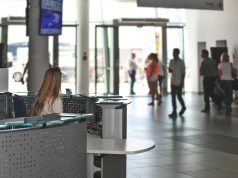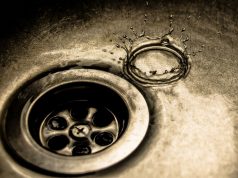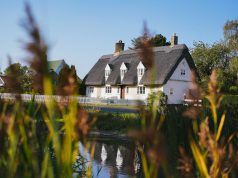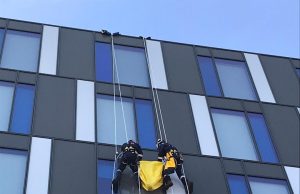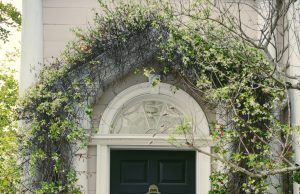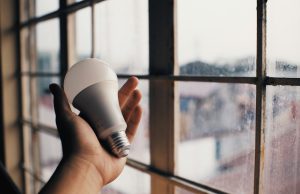
The big things we look at when we buy a house have been discussed seemingly ad infinitum. There are, however, some aspects of the house you would like to turn into a home that perhaps you have overlooked. This is why it’s important to plan for the unexpected, unintended expenses after you’ve moved into your new house. To do this, be sure to leave a financial cushion – in your bank account or in your Neteller account – above and beyond the price of the house itself.
In addition to the big basics, here are a few other areas Blue Door Realty Team says you should consider.
Privacy
When your kids are older, will the house provide the kind of privacy they’ll want? If one bedroom leads to another bedroom, that may mean selling and moving sooner than you would have liked.
Privacy involves more than bedrooms. If you’re looking to buy in a hilly area, try to see if people can easily see into a room from the outside.
Privacy extends to guests. A bathroom arrangement that’s okay for your family might not be okay for your parents or other overnight guests. Some new homeowners have found that the downstairs bathroom intended for the use of guests was not nearly as soundproof as it should have been. It cost them money to provide more privacy to people downstairs.
Safety
This is the safety of the community and also the safety of the house. Find out if the house already has a safety system, whether it’s good enough for your needs and how much it would cost to install or upgrade a safety system.
If you’re hoping to buy a large property, you might consider building a wall with a gate. In addition to the cost of such a massive safety system, you need to find out if the municipality even allows walls and gates.
Many people either consider the safety of the house from the front or from the back but neglect to consider both! Your kids will play in the back. Is there room for playground equipment? Is there room for an above-ground pool?
Air Flow
The cost of cooling the house is directly related to the existence or lack thereof of simple air flow. Heating in the winter is based on the local climate plus insulation. That’s why we check the insulation before we buy. But not enough people open the windows to check the air flow.
Even in many cities, there will be neighbourhoods with better air circulation than others. Some cities near large bodies of water have vastly different climates depending on the part of town you’re in.
Chicago is a huge city with 25 miles of lakefront. The neighbourhoods near the lake have much milder winters (as cold as they are) than the neighbourhoods even just ten miles or less inland. Further away from the lake there is more wind, colder winter nights, but less snow.
In the summer, hot and humid air can be ameliorated greatly through air flow. The cost of air conditioning and even floor fans is very high so natural cooling through air flow is a great cost saver. Sometimes the more expensive house is cheaper in the long run because you spend less money living in it.
Closet Space
For most new homeowners, this is a no brainer; they see closets and assume that there’s enough closet space. There might be. Here are a few tips. The front hall closet needs to be wide enough for winter coats for you and your family and your guests.
Try to use the front hall closet for nothing else hanging. You can use the floor space and the shelf for anything that fits but the hanging space should be reserved for winter.
Bedroom closets are often walk-ins but have a lot of wasted space because people don’t walk in as far as the closet reaches. It would have been better to have less closet space and more floor space in the room itself. Most bedrooms in North America have plenty of floor space for dressers but that is not the case in the rest of the world. So, efficient closet space is very important.
Kitchen Space
Closet space inevitably leads to how big is the kitchen and are there enough cabinets? We should also check the comfort and convenience of working in the kitchen. If we plan on eating out or bringing in fast food, we don’t need a useful kitchen but if we plan on cooking and storing food we do.
A kitchen should have a pantry so we can buy in bulk when the staples of our diet are on sale. Many people fail to measure the space available for a refrigerator and discover that when they want to upgrade their refrigerator, they are limited in space and cannot buy the fridge they really want.
You’ll need as many cabinets as you have dishes, cups, pots, and pans. Adding cabinets later on is very expensive.
Electrical Outlets
The last item is electrical outlets. We look for all the obvious places where there should be an outlet. Check that there are enough outlets in the basement. Check that there is an outlet in the pantry. You may never use it but some people decide to buy a free-standing freezer so they can buy meat products on sale and freeze them and place the freezer in the pantry. Think of the pantry as a room.
Finally, check for outlets outside. You may want to use an electric lawn mower or gardening tools. You never know what you’ll need an outlet for until you actually need one.

